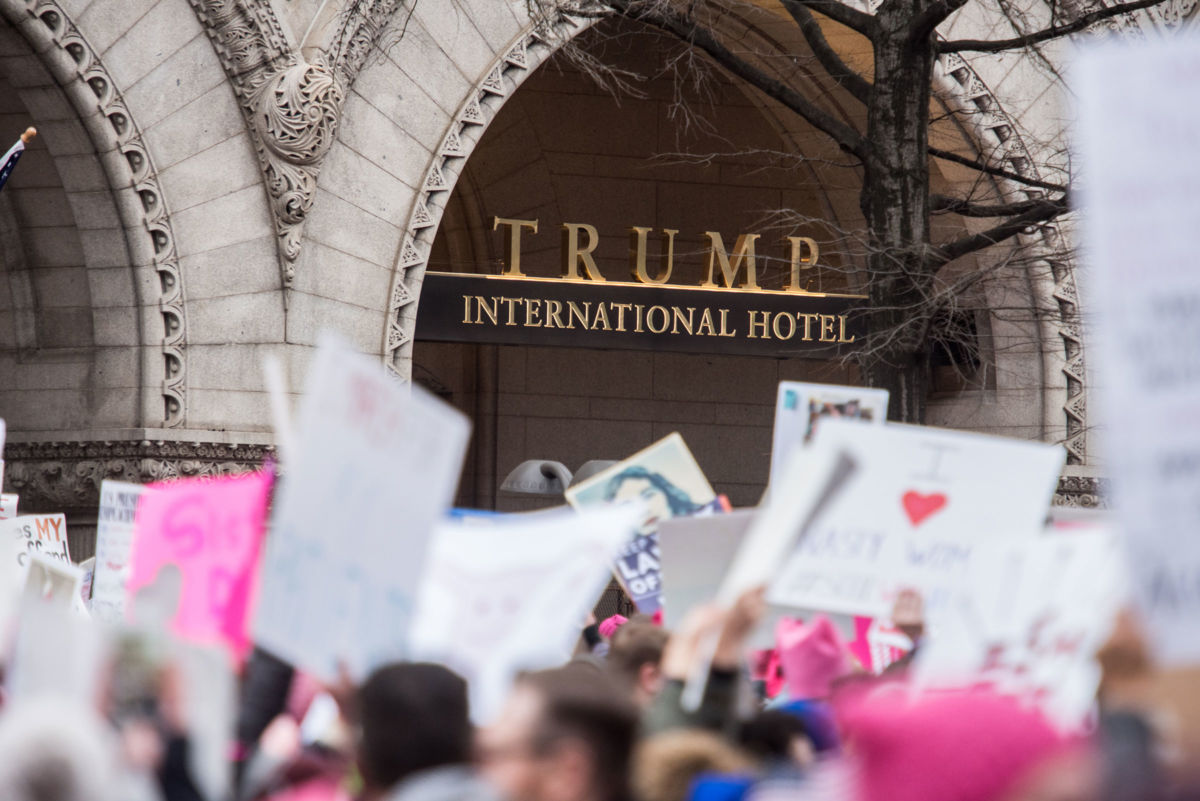When North Korean leader Kim Jong-un and President Donald Trump meet for a second summit in Vietnam from February 27 to 28, keep an eye on whether the two discuss developing hotels on North Korea’s beaches. This topic came up the last time they met, raising the eyebrows of ethics watchdogs worried that Trump is using his position to enrich himself unconstitutionally under the foreign emoluments clause.
The courts certainly have their hands full with the Trump presidency. In both CREW v. Trump and D.C. v. Trump, plaintiffs have argued that Trump is violating the Constitution’s foreign and domestic emoluments clauses by taking in prohibited monies from foreign kings and domestic states. Under the U.S. Constitution, domestic emoluments are monies from the federal government or the fifty states that give a salary boost to the president. These are not allowed. The President is also not allowed to keep foreign emoluments, or in other words money from foreign governments, without the consent of Congress. The President maintains that he is allowed to accept both types of emoluments if they flow to him through his business. What we don’t know yet is how these cases will resolve this issue.
Under normal circumstances, who stays in which hotel room would not raise a constitutional issue — but that changes when the hotelier is the president of United States. For example, after Trump became President, lobbyists representing the Saudi government paid for several hotel blocks at the Trump International Hotel in Washington — booking 500 nights for at least $270,000, according to the Washington Post. This is potentially problematic because U.S. presidents are prohibited from keeping foreign emoluments without the consent of Congress. Spoiler alert: Congress has not consented to Trump keeping any foreign emoluments. In fact, 200 members of Congress are suing him over that fact in a third emoluments lawsuit called Blumenthal v. Trump, which alleges that Trump has conflicts of interest in least 25 different countries.
Meanwhile, on the domestic front, a Maine delegation that included then-Governor Paul LePage paid for 40 hotel rooms in Trump’s D.C. hotel for $22,000, according to the Portland Press Herald. The problem is that those rooms were paid for on the taxpayers’ dime, potentially violating the domestic emoluments clause which says that states are not allowed to augment the president’s base salary.
As I have written before, the CREW case is going nowhere fast, as the district court judge ruled that none of the plaintiffs had standing to sue. The plaintiffs appealed that ruling to the Second Circuit, and a three-judge panel heard their appeal last October but has not yet ruled.
Meanwhile, in D.C. v. Trump, the district judge found that both the State of Maryland and the District of Columbia had standing to sue the president for the potential violation of both emoluments clauses. The case was poised to go into the discovery phase and the plaintiffs had issued a number of subpoenas. But the Department of Justice lawyers representing Trump asked the district judge for permission to file an interlocutory appeal — an appeal before the case is finished at the trial level — which could delay the resolution of the case. The trial judge refused, but the lawyers at DOJ threw a Hail Mary pass, asking the Fourth Circuit for a writ of mandamus to direct the trial judge to allow the interlocutory appeal. The Fourth Circuit will hear oral arguments on March 19; meanwhile discovery is on hold.
It’s possible that both circuit courts will agree with the president and dismiss both cases. It is also possible that one circuit court will allow one of the emoluments cases to go forward while the other halts the companion case. That scenario would create a circuit split, which would propel both cases towards the Supreme Court. Or it is possible that the president will lose across the board and face discovery from both sets of plaintiffs in ongoing suits.
Regardless of outcome, clarity on the emoluments issue is needed not just for this administration, but potentially for future ones: Americans should know if they need to be concerned about voting for someone who potentially could put his or her own business interests ahead of the national interest. If Howard Schultz or Jeff Bezos or Michael Bloomberg runs for president next, Americans should know whether they’re voting again for someone who would run into an emoluments problem on day one.
Speaking against the authoritarian crackdown
In the midst of a nationwide attack on civil liberties, Truthout urgently needs your help.
Journalism is a critical tool in the fight against Trump and his extremist agenda. The right wing knows this — that’s why they’ve taken over many legacy media publications.
But we won’t let truth be replaced by propaganda. As the Trump administration works to silence dissent, please support nonprofit independent journalism. Truthout is almost entirely funded by individual giving, so a one-time or monthly donation goes a long way. Click below to sustain our work.
